Full of vivid ceremonies that honour Assamese customs and legacy, Bihu is the Harvest Festival of Assam. With Bohag Bihu, the start of the Assamese New Year, this tri-annual ceremony symbolises seasonal changes and the cycle of agricultural seasons. From traditional music to dancing to feasts tying communities together all throughout the state, it is a rainbow of vibrant performances. Bihu draws tourists from all throughout the nation and beyond with this richness of the joyful attitude and great cultural value it possesses.
Location
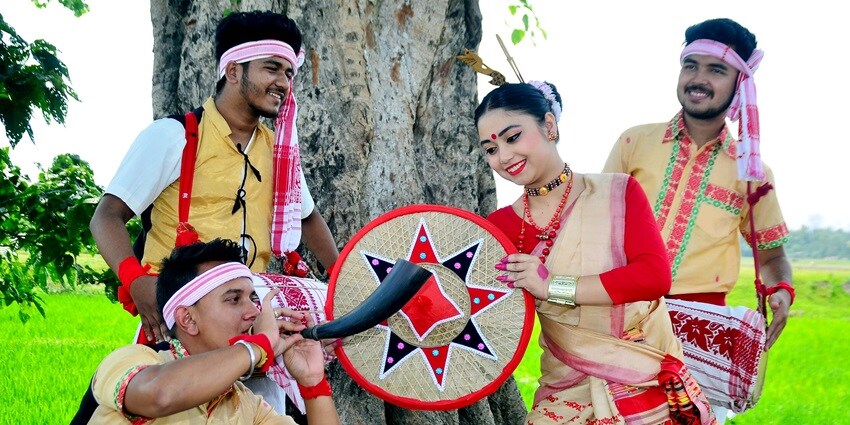
Photo: Diganta Talukdar / Wikimedia Commons
The Bihu festival is celebrated all over the state of Assam in Northeast India, a state world-renowned for its green tea plantations diverse wildlife and rich cultural heritage. While festivals are held all over the state, some of the biggest ones take place in the capital of this state, Guwahati.
Suggested Read: Wildlife Sanctuaries In Meghalaya
How To Reach Assam

Photo: Francesco Ungaro / Pexels / Image For Representation Only
There are several ways to reach Assam for the Bihu festival:
By Air: Lokpriya Gopinath Bordoloi International Airport in Guwahati is the main gateway to Assam. It is well-connected to major cities across India. From the airport, visitors can take taxis or buses to reach their destinations within Assam.
By Rail: Assam is well-connected by rail to major cities in India. The main railway stations are in Guwahati, Dibrugarh, and Jorhat. These stations receive trains from various parts of the country.
By Road: Assam is accessible by road from neighbouring states. Luxury and regular buses operate from nearby cities. The journey offers scenic views of the Northeast Indian landscape.
Places To Visit To Celebrate Harvest Festival Of Assam
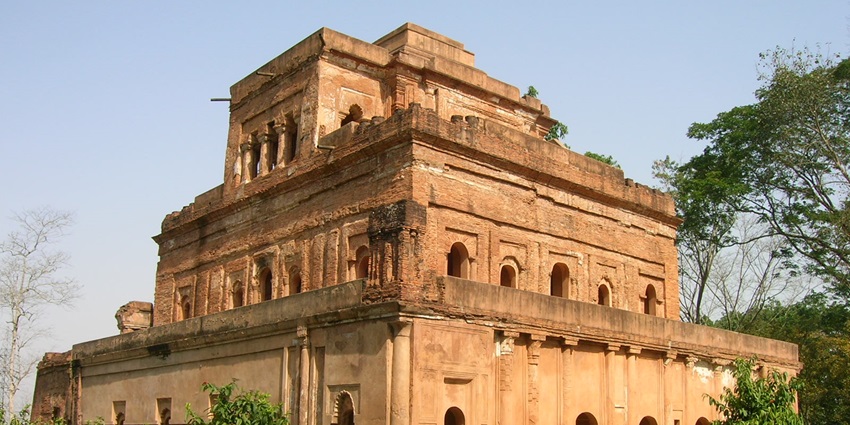
Photo: Mozzworld / Wikimedia Commons / Image For Representation Only
Here are the key places in Assam celebrating the Bihu festival which is the festival of celebration of Harvest in the state.
1. Guwahati
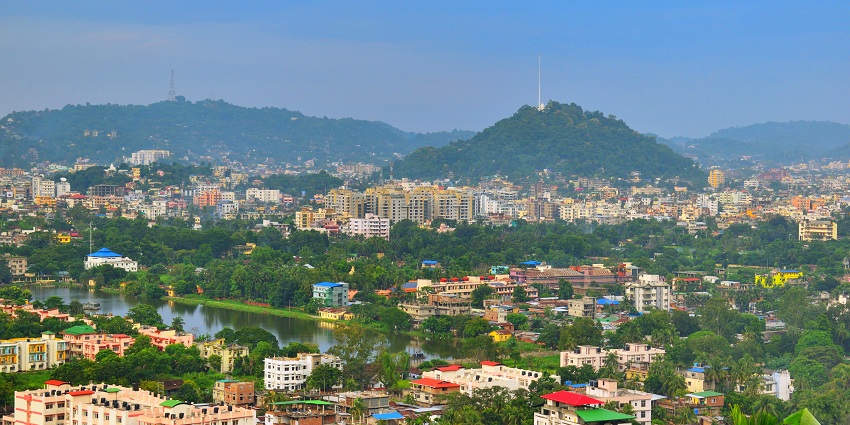
Photo: Saurav022 / Shutterstock
Guwahati, Assam’s largest city, hosts some of the most spectacular Bihu celebrations. During the festival, the city transforms into a vibrant cultural hub, with numerous events showcasing traditional Assamese music, dance, and art. Assam’s Bihu celebrations are known for their scale, diversity, and the enthusiastic participation of both locals and tourists. Iconic venues like Judges Field and Latasil Field become the epicentres of grand Bihu functions, attracting thousands of spectators.
Best Time To Visit: Mid-April
Suggested Read: Things To Do In Jorhat On Your Next Journey To Assam
2. Jorhat
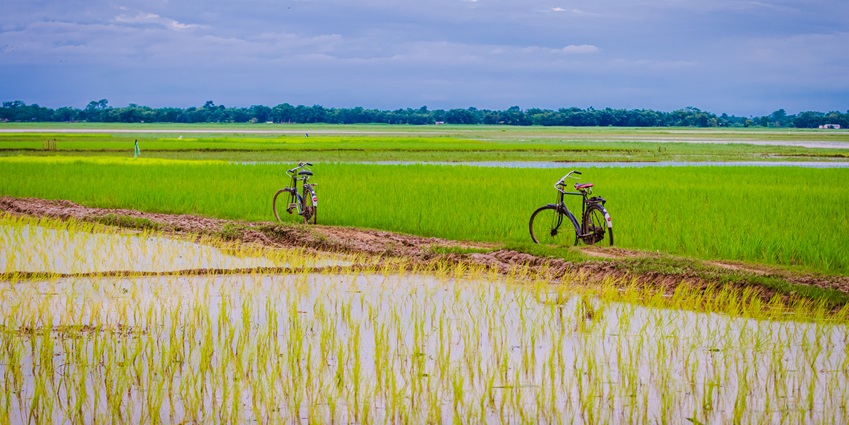
Photo: Gitartha.bordoloi / Wikimedia Commons
Jorhat, often referred to as the cultural capital of Assam, celebrates Bihu with deep-rooted traditions and enthusiasm. The city comes alive with numerous Bihu functions that showcase the authentic essence of Assamese culture. Visitors can experience traditional Bihu dance performances, folk music concerts, and cultural exhibitions throughout the festival period. Jorhat’s close connection to Assam’s tea industry adds a unique charm to the celebrations, with many events taking place against the backdrop of lush tea gardens.
Best Time To Visit: April
Entry Fee: Free
3. Sivasagar
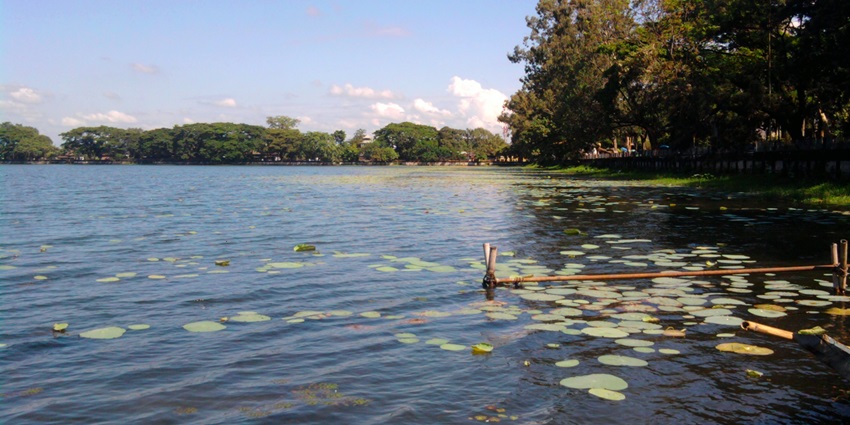
Photo: Hiranmoy.boruah / Wikimedia Commons
Sivasagar, a town steeped in history, offers a unique Bihu experience that blends cultural heritage with festive celebrations. The town’s Bihu events often take place near historical monuments like the Rang Ghar and Talatal Ghar, creating a captivating fusion of past and present. Sivasagar’s Bihu celebrations are known for their adherence to traditional customs and rituals. Visitors can witness authentic Bihu performances, participate in community feasts, and explore the town’s rich Ahom dynasty heritage.
Entry Fee: Free
Suggested Read: Uncover The Natural Splendor Of Laokhowa Wildlife Sanctuary
4. Tezpur
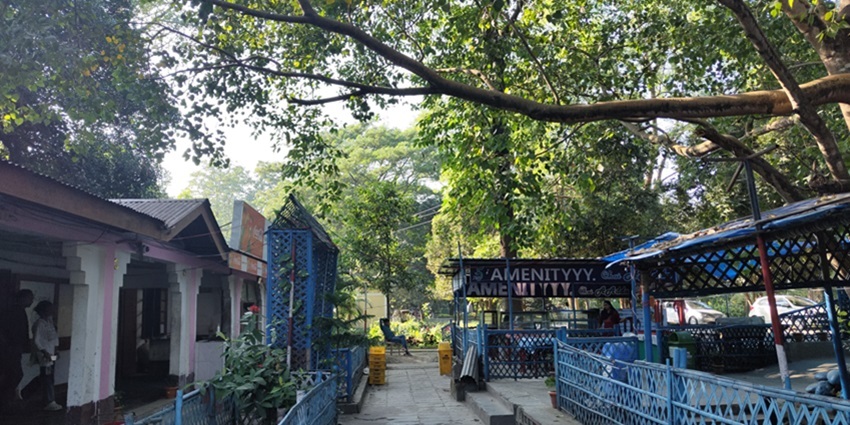
Photo: Himanshum14 / Wikimedia Commons / Wikimedia Commons
Tezpur, known as the ‘Cultural Capital of Assam’, hosts vibrant and culturally rich Bihu celebrations. The town’s festivities are particularly famous for their traditional Bihu Kuwori (Bihu Queen) competitions, which showcase young women performing Bihu dance. Tezpur’s picturesque setting along the Brahmaputra River provides a stunning backdrop for colorful celebrations. The town’s strong connection to Assamese literature and art is reflected in its Bihu celebrations, offering a comprehensive cultural experience.
Entry Fee: N/A
5. Dibrugarh
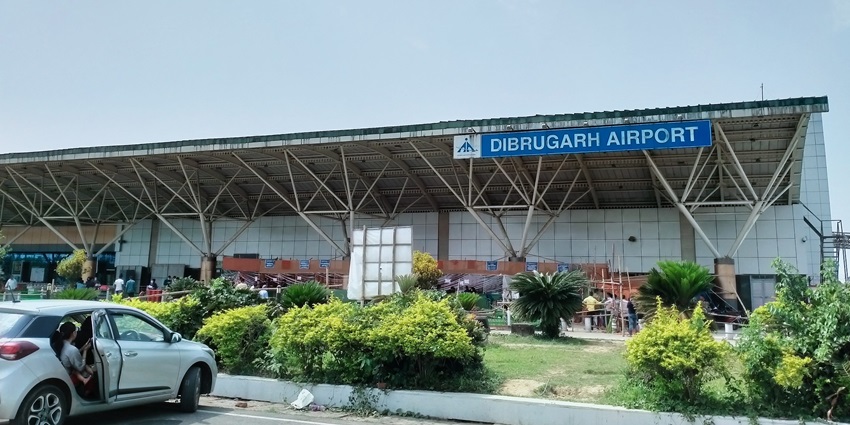
Photo: SlowPhoton / Wikimedia Commons
Dibrugarh, famously known as the ‘Tea City of India’, celebrates Bihu with great enthusiasm and grandeur. The city’s Bihu events often feature unique elements from Upper Assam’s culture, providing visitors with a distinct festival experience. Dibrugarh’s celebrations are known for their large scale and the active participation of surrounding tea garden communities. Visitors can enjoy elaborate cultural programs, traditional sports competitions, and food festivals showcasing local cuisines.
Entry Fee: N/A
Suggested Read: Places To Visit In Tinsukia To Escape City Life
Where To Stay
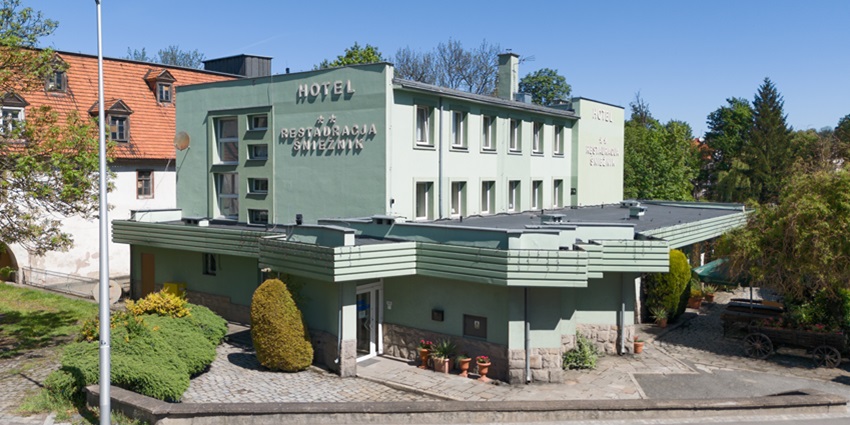
Photo: Jacek Halicki / Wikimedia Commons / Image For Representation Only
Assam offers a range of accommodation options to suit various preferences and budgets. In Guwahati, luxury seekers can opt for hotels like Vivanta by Taj or Radisson Blu. Mid-range options include Hotel Brahmaputra Ashok and Hotel Vishwaratna. Budget travelers can find numerous guesthouses and hostels across the city. In other towns, government-run Assam Tourism Development Corporation (ATDC) guest houses offer comfortable stays at reasonable rates. During Bihu, many locals open their homes to visitors, providing a unique homestay experience. This allows guests to immerse themselves in Assamese culture and participate in traditional Bihu celebrations with families.
Where To Eat
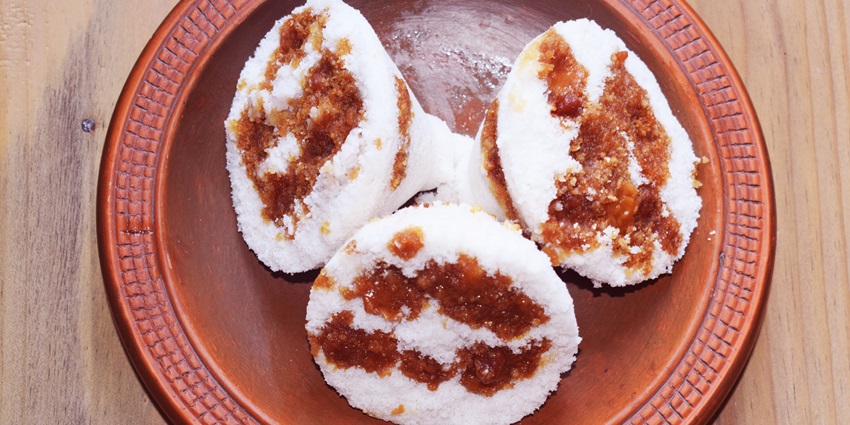
Photo: Dolon Prova / Wikimedia Commons / Image For Representation Only
The Bihu festival is as much a culinary delight as it is a cultural extravaganza. During this time, every corner of Assam comes alive with the aroma of traditional Assamese delicacies. In cities like Guwahati, restaurants such as Paradise and Maihang offer a wide range of Assamese dishes. Street food stalls and temporary food markets set up during Bihu are perfect for trying local specialities like pitha (rice cakes), laru (coconut sweets), and various fish preparations. The festival is an excellent time to explore Assam’s rich culinary heritage, from savoury fish tenga to sweet kolar pitha.
Suggested Read: Wildlife Sanctuaries In Assam
Best Time To Visit In Assam
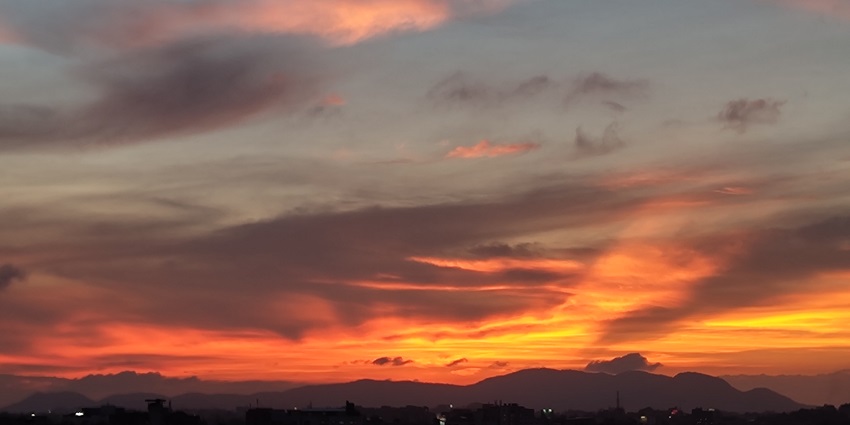
Photo: Himanshum14 / Wikimedia Commons
The most famous Bihu celebration, Bohag Bihu or Rongali Bihu, typically takes place in mid-April, marking the Assamese New Year and the spring season. This is considered the best time to experience the festival in its full glory. The weather during this time is generally pleasant, with temperatures ranging from 15°C to 25°C, making it comfortable for outdoor celebrations. However, Assam also celebrates two other Bihu festivals: Kati Bihu in October and Magh Bihu in January, each with its unique charm. For those interested in experiencing all facets of Bihu, planning visits during these times can offer a comprehensive understanding of Assamese culture.
Other Factors To Consider
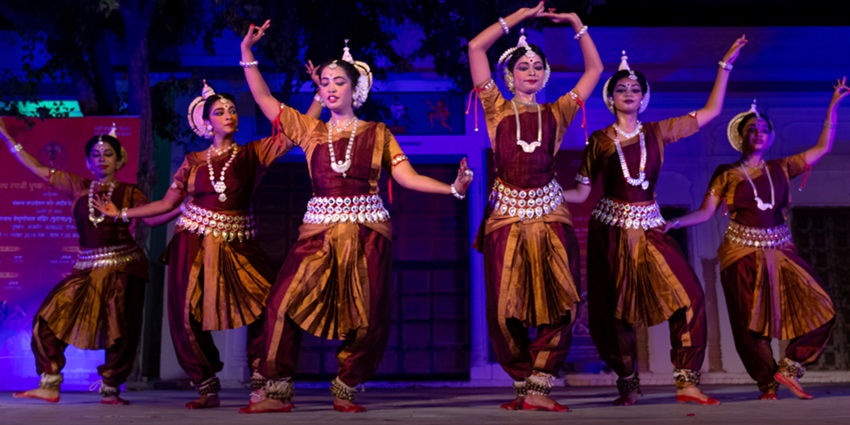
Photo: AbhishekMittal / Shutterstock / Image For Representation Only
Average Cost of the Trip
Budget travellers can manage with about ₹1,500-2,500 per day, including accommodation, food, and local transport. Mid-range travellers might spend ₹3,000-5,000 daily, while luxury travellers could spend ₹6,000 or more.
Tips For Travellers
- Book accommodation well in advance as hotels fill up quickly during Bihu.
- Carry light cotton clothes for the daytime and a light jacket for the evenings.
- Respect local customs, especially when visiting rural areas or participating in traditional events.
- Try to learn a few basic Assamese phrases to connect better with locals.
- Be prepared for occasional rain showers, especially during Bohag Bihu.
- Carry cash, as some rural areas may have limited card acceptance.
- Don’t miss the opportunity to buy traditional Assamese handicrafts and textiles during the festival.
- Be respectful when photographing cultural events or people in traditional attire.
Suggested Read: Dehing Patkai National Park
The harvest festival of Assam is a vibrant celebration that offers a deep dive into Assamese culture, tradition, and hospitality. Whether you’re a culture enthusiast or simply looking for a unique travel experience, Assam’s Bihu festival promises an unforgettable journey into the heart of Northeast Indian culture. Plan your visit to Assam with TripXL and immerse yourself in the rhythms of Bihu and the warmth of Assamese hospitality.
Cover Photo: Himanshum14 / Wikimedia Commons


 WhatsApp
WhatsApp
 Twitter
Twitter









